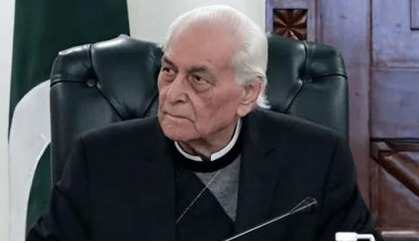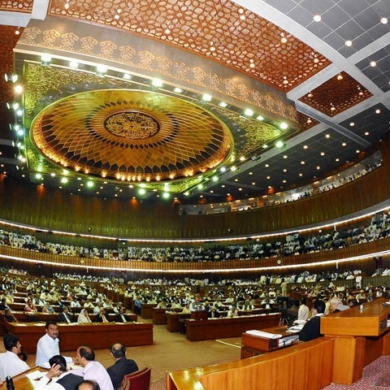Caretaker Khyber Pakhtunkhwa Chief Minister Mohammad Azam Khan breathed his last on Saturday at the age of 89.
He was admitted to the intensive care unit the previous night due to a sudden illness.
Known for his unwavering dedication to public service, Azam Khan had only recently taken the oath as the Chief Minister of Khyber Pakhtunkhwa in January of this year.
Revered as a Barrister-at-Law from Lincoln’s Inn, London, Azam Khan’s illustrious career spanned various key positions in both federal and provincial governments. Notably, he served as the minister for interior, capital administration, and development in the caretaker cabinet of ex-premier Nasir-ul-Mulk in 2018.
His contributions also extended to the provincial cabinet, where he held pivotal roles such as minister for finance, planning, and development during the caretaker period under CM Shamsul Mulk from October 2007 to April 2008.
Prior to these roles, Azam Khan served as the chief secretary from September 1990 to July 1993, leaving an indelible mark on the administrative landscape. His influence was also felt as the chairman of the Pakistan Tobacco Board.
In the wake of Azam Khan’s passing, Interim Information Minister Murtaza Solangi assured that a new Chief Minister for Khyber Pakhtunkhwa would be appointed expeditiously. He emphasized that, according to the constitution, the provincial government would continue its duties seamlessly, with only the chief minister’s position to be filled.
Former Election Commission of Pakistan secretary Kanwar Dilshad provided insights into the constitutional process, noting that with the Chief Minister’s demise, the provincial cabinet stands automatically dissolved.
Until a new Chief Minister is elected, the governor will assume responsibility for managing provincial affairs, as dictated by Article 224 of the Constitution.
While expressions of grief and condolences pour in from various quarters, including Caretaker Prime Minister Anwaarul Haq Kakar and President Dr Arif Alvi, the legacy of Mohammad Azam Khan as a statesman, bureaucrat, and dedicated public servant will endure in the annals of Pakistan’s political history.



